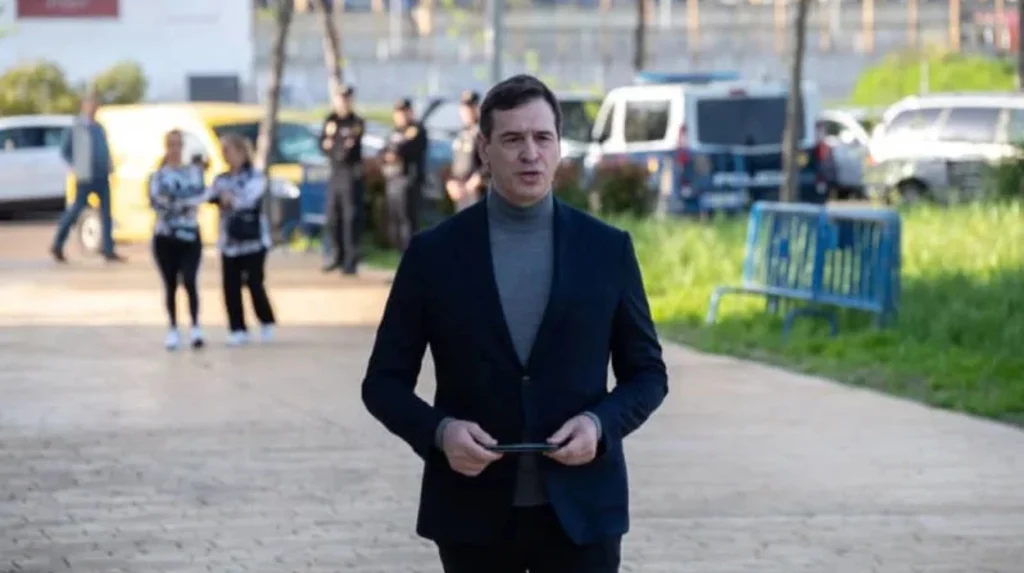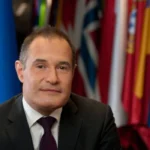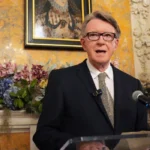The brother of Spanish Prime Minister Pedro Sánchez, David Sánchez, has been formally indicted and will stand trial accused of influence peddling in a major corruption investigation that is further intensifying the political crisis surrounding the Socialist leader. This indictment comes alongside other judicial challenges facing Sánchez’s close family, including an upcoming trial of his wife, Begoña Gómez, on embezzlement charges. The unfolding legal battles have intensified pressure on Sánchez’s government and raised questions about his political future.
The trial of David Sánchez is linked to allegations that a position was tailor-made for him within the Socialist-led council of Badajoz, a province in Extremadura, in 2017. The job, coordinating music schools across the region, was allegedly designed exclusively to suit David Sánchez’s qualifications, bypassing standard appointment procedures. Judicial findings suggest that this programming of the position was influenced by Sánchez’s political ties, with evidence including testimonies and emails indicating the role was pre-assigned.
A judge overseeing the case authorized the prosecution after the anti-corruption campaign group Manos Limpias pushed for the case to proceed, despite prosecutors initially recommending dismissal because of insufficient evidence. Manos Limpias, led by Miguel Bernad—a lawyer and politician with former far-right affiliations—has called for a three-year prison sentence for David Sánchez. In response, the accused brother has consistently maintained his innocence.
Prime Minister Pedro Sánchez described the legal challenges as being politically motivated, asserting that the accusations are part of a concerted effort by far-right adversaries to destabilize his government.
“This is a fabricated campaign by extreme right-wing opponents,”
Sánchez stated, defending his family from what he described as a witch hunt.
This indictment accompanies other probes embroiling Sánchez’s government. Two former cabinet ministers and senior Socialist officials face separate investigations. Most notably, Sánchez’s wife, Begoña Gómez, has been ordered to stand trial on charges of embezzlement related to the misuse of public funds at Madrid’s Complutense University.
Judicial Proceedings Against Sánchez’s Wife Further Cloud Political Landscape
Begoña Gómez’s trial will begin shortly after the indictment of David Sánchez. She faces accusations over employing a government-paid assistant, Cristina Álvarez, who is alleged to have worked on personal tasks unrelated to her official duties. The assistant’s role during Gómez’s tenure at the university is central to the embezzlement case.
Judge Juan Carlos Peinado overseeing the case has cited emails indicating activities by Cristina Álvarez that exceeded her official duties, describing this as sufficient evidence to warrant a jury trial. The judge wrote in his ruling that Gómez’s personal friendship with Álvarez was the basis for the latter’s appointment to a highly trusted position, which could constitute a diversion of public resources to private interests.
Despite the serious allegations, Gómez has denied any wrongdoing. At a recent court hearing in Madrid, she and her assistant refrained from answering direct questions posed by the judge and prosecution, responding only through their lawyers.
Government spokesperson Pilar Alegria addressed the issue, saying,
“I hope that the truth will emerge and rectify the situation,”
emphasizing respect for the judicial process, even as the lawsuits threaten to destabilize the minority Socialist-led government.
Broader Corruption Scandals Shake Sánchez Administration
The corruption probe extends beyond Sánchez’s family, ensnaring significant figures in the administration. Former cabinet ministers Santos Cerdán and José Luis Ábalos, both senior Socialist officials, are under investigation for separate allegations, fueling perceptions of pervasive corruption within the ruling party.
The combination of trials and investigations has created an unprecedented judicial crisis for Sánchez, described by many analysts as the most severe since he took office. His government’s political standing has suffered repeated defeats in Congress, coinciding with the surge of corruption allegations against his close circle.
Political opponents on the right have capitalized on these scandals to demand Sánchez’s resignation. They argue that the accumulation of legal cases involving the prime minister’s family and close associates signals a systemic problem of corruption within his rule.
However, Sánchez has remained defiant, rejecting calls to step down. He portrays the legal battles as orchestrated campaigns aimed at undermining his progressive agenda. Despite mounting pressure, he continues to govern and defend his family vehemently.
Judicial Findings Reveal Tailored Employment
The legal case against David Sánchez revolves around a position that was ostensibly created to meet his personal preferences and abilities rather than being legitimately publicized or awarded through competitive processes. According to documents from the Provincial Court of Badajoz, Sánchez’s role as coordinator of music conservatories seems to have been prearranged, with significant influence exerted by political leaders within the PSOE (Spanish Socialist Workers’ Party).
Emails and testimonies reveal detailed coordination suggesting that the employment opportunity was not open to public competition. Additionally, the defendant’s residency declaration, claiming residency in Portugal with its lower tax rates, has raised further suspicion about exploiting political influence for personal benefit.
Adding to the complexity, David Sánchez allegedly used his influence to secure the hiring of a friend from Moncloa Palace as his assistant. Observers highlight the case as a stark example of nepotism and patronage within political structures.
Impact on Spain’s Political Future
The indictment of the prime minister’s brother, coupled with his wife’s imminent trial, is shaping up to define the political narrative in Spain for the foreseeable future. The ongoing investigations implicate multiple layers of Sánchez’s administration, placing his leadership under intense scrutiny.
Political analysts note that these legal battles could weaken Sánchez’s ability to push through his legislative agenda, particularly given the fragile nature of his minority coalition government. Opposition parties are likely to exploit the scandals to erode the Socialist base and call for early elections.
Yet, Sánchez’s public support remains resilient in some quarters, with loyalists viewing the corruption probes as politically motivated attempts to destabilize Spain’s elected government. The situation underscores the fragile balance between judicial independence and political maneuvering in modern democracies.
In conclusion, the indictment of Spanish Prime Minister Pedro Sánchez’s brother for influence peddling represents a significant escalation in the corruption scandals engulfing the Sánchez family and their political circle. These developments not only threaten the personal reputations of those involved but also cast a long shadow over the stability and credibility of Spain’s current government amid a national climate already fraught with partisan tensions.







